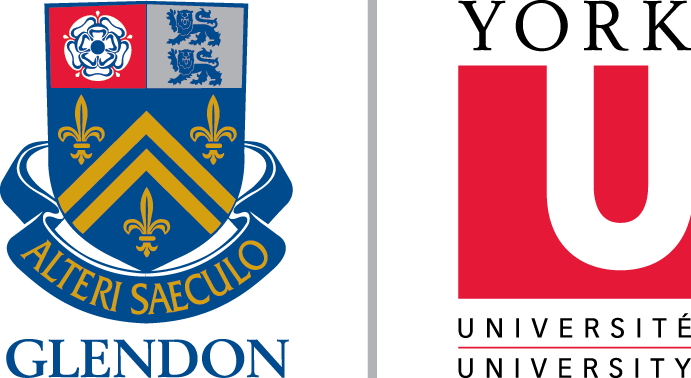The Glendon School of Public and International Affairs (GSPIA) is a unique global institution that contributes to advancing public policy and international affairs in an interdisciplinary and bilingual environment. The GSPIA is a dynamic and collegial community of talented students, faculty, and fellows who share a passion for shaping Canada’s future and contributing to innovative and effective public policy. Our alumni have succeeded as leaders in public policy, government, non-governmental organizations, education and the business sector.
What is the MPIA program?
The Master’s in Public & International Affairs (MPIA) Program
Housed within Canada’s first bilingual School of Public and International Affairs, our Master’s program offers a unique, high-quality bilingual education that prepares students for leadership roles in public life. Through this two-year degree, students become well versed not only in public policy and administration, but in public affairs — a broader examination of Canadian public institutions and the domestic and international settings in which they function.
The program will equip you with the skills to analyze the key challenges in Canadian public life, place Canada’s public institutions in their global content, apply the core knowledge and tools of public management and policy, and work effectively in both English and French.
What do I need to apply to the MPIA Program?
Admission Requirements
- You must hold an honours undergraduate degree program or equivalent (typically a four-year program with full-time enrolment) from an accredited post-secondary institution
- You must have a minimum grade point average of B+ in the final two years of study.
- A B+, depending on your school’s grading scheme can be either:
- 7 out of 10
- 13/20
- 77%
- 3.3 on a 4.0 scale
- 3.33 on a 4.3 scale
- A B+, depending on your school’s grading scheme can be either:
- Bilingualism in English and French: You must be proficient in one of Canada’s official languages and have a working knowledge of the second official language. You must also submit proofs of knowledge of the two languages, as explained below.
How much will this cost?
TUITION FEES
The MPIA is a fully-funded program. All full-time domestic MPIA students receive a stipend of $3,333 per semester as a part of their Fellowship funding. Meaning, once you deduct the cost of tuition, roughly $1,900 will remain of your Fellowship per semester (the program lasts 5 semesters).*
Fall/Winter 2020-2021 Session Fees
| Domestic students | International students | |||
| 1 term | 5 terms | 1 term | 5 terms | |
| Full Time | $ 1,435.51 | $ 7,177.55 | $ 6,275.00 | $ 31,375.00 |
* The cost of Tuition does not include supplementary fees. The total value of the Fellowship may change if you receive other scholarships and awards.
For more detailed information, please click here. Tuition fees for 2021-2022.
Featured Students
 Allison O’Neil
Allison O’Neil
Class of 2021
Allison graduated from the MPIA program in 2021. She wrote a Major Research Paper entitled ‘From Apology toward Reconciliation? Federal Policy Discourse about Services for Indigenous Children in Canada, 2008–2020, and she received the prestigious Ontario Graduate Scholarship (OGS) and CGS-M for her research projects in the MPIA. Before starting at Glendon, she worked for two years at the Kyoto City Board of Education in Japan as a language teacher. She completed her bachelor’s degree in International Relations at the University of British Columbia in 2015.
 Aletheia Delivré
Aletheia Delivré
Class of 2018
Title: Project Officer
Company: UNESCO International Institute for Educational Planning
Aletheia graduated from the Double-Degree MPIA programme at Glendon and IEP Strasbourg in 2018. She was offered a consultant position immediately following graduation at the UNESCO’s International Institute for Educational Planning, based in Paris, where she had done an internship earlier in 2018 within the R&D team. Although she only started working as a full-time member on the R&D team a few months prior, she already had rare opportunities to participate in some very interesting things in the context of research on SDGs, education and cities. After months spent defining and revising research tools and our analytical framework, with a small team of experts, they launched a pilot on the field early December 2018 – her first official UNESCO mission to the north of France – with approval from UNESCO to take the programme international in 2019-2020. The official online launch was live in late December, on the UNESCO-IIEP web page, Twitter and LinkedIn. She is deeply grateful for the important role the double-degree MPIA programme with Strasbourg played in the opportunities that presented themselves both during and after her studies.
Featured Faculty
 Dr. Emily Laxer
Dr. Emily Laxer
In 2019, Dr. Laxer launched a new book investigating the politics of secularism in France and Quebec and, in 2020 was named the recipient of the Canadian Sociological Association’s “John Porter Award” in recognition of her book Unveiling the Nation: The Politics of Secularism in France and Quebec. In 2020, Dr. Laxer has also published an article on Muslim participation in society – that is, political and civic incorporation – in two countries: Canada and France. As of June 2020, Dr. Laxer is the principal investigator of the SSHRC Insight Development Grant “Politicians Against the Law: Populist Representations of Rights and Legality in Contemporary Canadian Politics”. She holds a PhD from the University of Toronto, a Master of Arts from McGill University, and she teaches PIA 6300 State and Society.

Featured Courses
Canada and its Place in the World (PIA6200)
Our weekly colloquium is open to the public and is a critical reflection on challenges facing Canada and the Canadian state, from both domestic and international perspectives. Sessions involve faculty members, visiting faculty, practitioners, members of the GSPIA Senior Fellows program and more!
Colloquium Topics: Fall 2020
Tudor Alexis, Consul General of France to Toronto: Failure is a route to success: a talk by global citizen and climate champion, Tudor Alexis
Patrick Case, Assistant Deputy Minister, Educational Equity Secretariat, Ministry of Education, Government of Ontario: Equity in Education: Social Justice and Economic Perspectives
Dr. John McArthur, Senior Fellow with the Brookings Institution: United Nations Sustainable Development Goals (SDGs) / Agenda 2030
Dr. Kwame McKenzie, CEO, Wellesley Institute: When COVID-19, Racism and the Social Determinants of Health Intersect
John Honderich, Former Chairman, TorStar: Influencing Public Policy
Ambassador for Canada to the United Nations Richard Arbeiter: Canada’s priorities at the U.N.
Senator the Honourable Marilou McPhedran, Senate of Canada: Gender and Human Rights – domestic and international perspectives
High Commissioner for Canada to the United Kingdom Her Excellency Janice Charette
Dr. Armand LaBarge, Retired Chief, York Regional Police: Challenges and Opportunities for Policing in Canada
Kevin French, Deputy Minister, Treasury Board Secretariat, Secretary of Treasury Board and Management Board of Cabinet, Government of Ontario: Measuring the Costs of COVID-19
Colloquium Topics: Winter 2021
Jon Allen, Former Ambassador of Canada to Israel, Spain and Andorra: Diplomacy in Challenging Times
Elissa Golberg, Assistant Deputy Minister, Strategic Policy, Global Affairs Canada: Canada’s Feminist International Assistance Policy
Dr. Sue Szabo, Director of Innovative and Climate Finance, Global Affairs Canada: International Development: Measuring the Impact of Canada’s Contributions
Akosua Matthews, Barrister At Law, Falconers LLP: Indigenous Child Welfare: Challenges and Successes
Dr. Michael DeGagné, President & CEO, Indspire: A Brighter Future for Indigenous Youth
Taki Sarantakis, President of the Canada School of Public Service: Government in the Digital Era
Hon. John McKay, Member of Parliament, Scarborough Guildwood: The Modern Slavery Act
Avvy Yao-Yao Go, Barrister & Solicitor, Clinic Director, Chinese and Southeast Asian Legal Clinic: Advancing Social Justice, Human Rights and Equity: An Ethnospecific Model
Stephanie Lake, CIHR and Pierre Elliott Trudeau Foundation Doctoral Scholar: The Public Health Implications of Cannabis Legislation
Mel Cappe, Former President of the Institute for Research on Public Policy and Former Head of Federal Public Service: Developing Public Policy: The Public Service – Political Interface
Capstone Seminar (PIA6100)
Our Capstone Seminar is taught by Denise Dwyer and Cordelia Clarke-Julien, both Assistant Deputy Ministers in the Ontario Government. Students prepare policy briefs and participate in mock cabinet sessions that Ontario Deputy Ministers and other high government officials (both provincial and federal) attend and where they provide feedback and get to know our students. Topics examined include Homelessness, Small Business and Increasing Teacher Diversity







